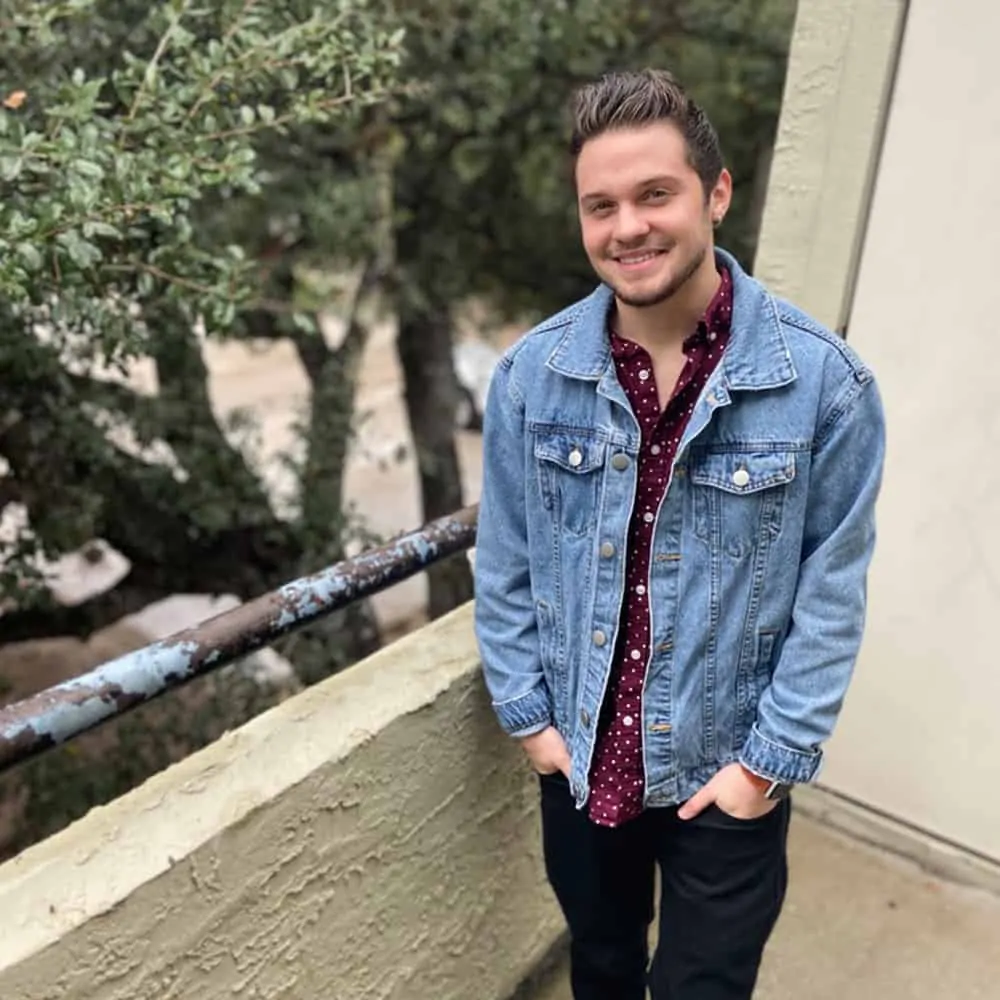Clean Date:September 27, 2018
Age:22
From:Houston, TX

I started experimenting with marijuana and alcohol at 13 years old, and I immediately became obsessed with changing the way that I felt. Once I realized there were all of these substances that made me feel better, I thought, “this is amazing!” After that, I started smoking and drinking regularly. I thought I was that kid that was only ever going to smoke weed – I wasn’t going to do anything else. But, once I turned 15, my friends began experimenting with Xanax, coke, and Ecstasy. I began taking OxyContin and morphine for a few months, but shortly after I graduated, my dealer didn’t sell pills anymore. It was just heroin. It was about a week after I graduated High School, I did heroin for the first time. From there, it really just spiraled until I was a full blown heroin addict.
My parents kicked me out once they realized I was doing a lot more than just smoking weed, but they hadn’t realized I was doing heroin yet. So they kind of just said, “If you’re going to do these kinds of things, you can’t live in our house.” I was living in hotels, couch-hopping, and I lived with my uncle for a period of time. From then on, I would try to convince my parents to let me come back home, they would believe me but then figure out that I was still using. It was like a never-ending cycle. I had definitely began to hate myself more than I ever did. The more damage I did, the more I hated myself, which led to me using more drugs. I lost relationships, I got arrested multiple times, and eventually I lost everything. It just took quite a few years to get to that point.
I somehow convinced myself that I was doing what all of the other 18 year olds who just graduated High School were doing, even though that was not the case at all. I found myself hanging out with a lot of older people in their late 20’s early 30’s, who lived in apartments with no furniture. Or I would end up at meth houses and somehow I would just end up justifying it. I would say, “Oh, it’s not that bad, I can stop whenever I want.” I was pretty much just running with it until the wheels fell off. I definitely was very suicidal. I was always suicidal since I was a teenager, just super depressed and hated myself. But once I realized where addiction was taking me, I thought, “If I die, I don’t really care.” So I kind of went on until the bitter end, as they say.
I had attempted to get sober two times before I got sober this time. The first time it was my parents telling me that “You need to go somewhere to try to get sober or we’re cutting you off, not only financially but emotionally. We’re not doing this anymore.” I went to a sober house for a couple of months, and detoxed cold turkey. But it didn’t work out and I relapsed. The second time, I actually went to an inpatient treatment center. That was when I went to Recovery Unplugged. I thought, I’ve already been to jail and treatment, the only thing left is death. So I thought, “I am going to do this and give it everything I have.”
One of the gifts I’ve received from being in recovery is having the capacity to be an honest, decent, genuine person. Even when I show up poorly or fall short, because we all do being human, I have the self-awareness to hold myself accountable or correct any wrongs that I’ve done. When I can’t see these things myself, I have enough people in my sober network that will tell me, “Hey, you’re kind of falling short in this area, so I’m going to need you to correct it.” That has been huge for me – being able to take constructive criticism with a grain of salt. Like, okay this person is calling me out on this because they love me, not because they’re punishing me or want me to feel shitty. Now, I work in treatment and I have my own place. I am financially stable, I have a better relationship with my family and friends than I’ve ever had in my life. I’ve also gained many friends that not only do I see myself being friends with forever, but I know that no matter what, I can call that at any time of day and that they’re going to be there. Today, I am able to show up and I can do the same for them.
I think the most important thing I’ve learned from my recovery is to try something different. Obviously I failed at the other few attempts of trying to get sober in and out of recovery facilities. So, doing something different for me was doing the steps this time but putting everything into it, physically and mentally. You get what you give. Actually having a community and fellowship and getting friends outside of my alumni group is super important. For a while I was really close with only them. But then I realized, “Okay, this is not going to be enough for me.” I realized I needed to make friends in all of the meetings so that I could have a real sober network. So I really tried to plug into that as best as I could and did a lot of things that I never did before. When I first tried getting sober, I didn’t care about keeping friends who were sober because I didn’t actually have any intentions on staying sober. So that was something I did differently this time around.